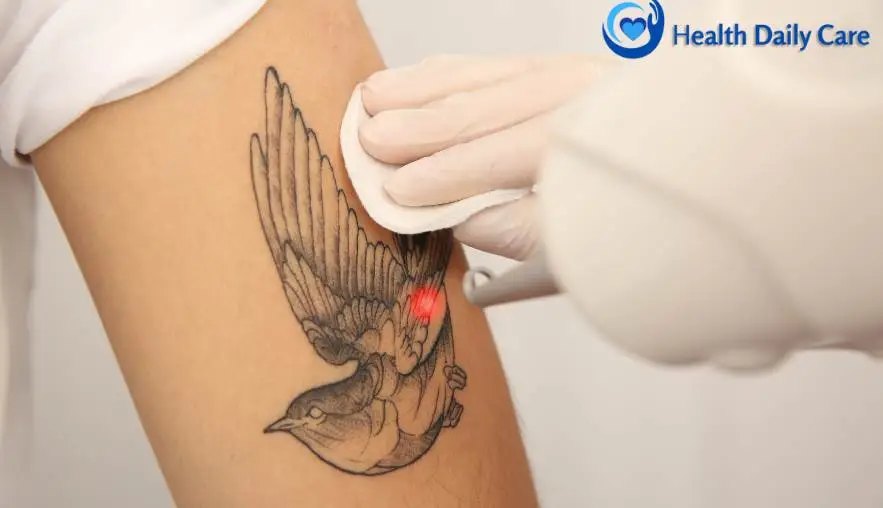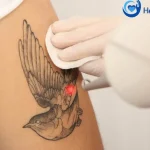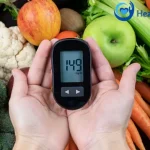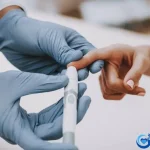Are you living with type 2 diabetes and contemplating getting inked? The intersection of body art and health raises questions about safety and suitability.
Fortunately, individuals with type 2 diabetes can indeed get tattoos, but it’s essential to approach the process thoughtfully. In this article, we’ll explore the considerations, precautions, and necessary steps for type 2 diabetics interested in getting tattoos.
From managing blood sugar levels to understanding potential risks and ensuring proper aftercare, let’s delve into how those with diabetes can safely navigate the tattooing experience without compromising their health.
Can Type 2 diabetes have tattoos?
People with Type 2 diabetes can get tattoos, but they need to be careful and take some steps to stay safe.
Before getting a tattoo, they should make sure their blood sugar levels are good because high levels can make healing harder.
It’s a good idea for them to talk to their doctor and a good tattoo artist before getting a tattoo. The doctor can give advice on managing diabetes during and after the tattoo, and the tattoo artist can make sure everything goes smoothly.
Choosing a professional and experienced tattoo artist is important because they need to use clean equipment to prevent infections.
After getting a tattoo, people with Type 2 diabetes should keep it clean and moisturized and follow any instructions from the tattoo artist.
If there are any signs of infection, like redness or swelling, they should see a doctor right away.
By being careful and taking care of themselves, people with Type 2 diabetes can get tattoos safely and enjoy them without any problems.
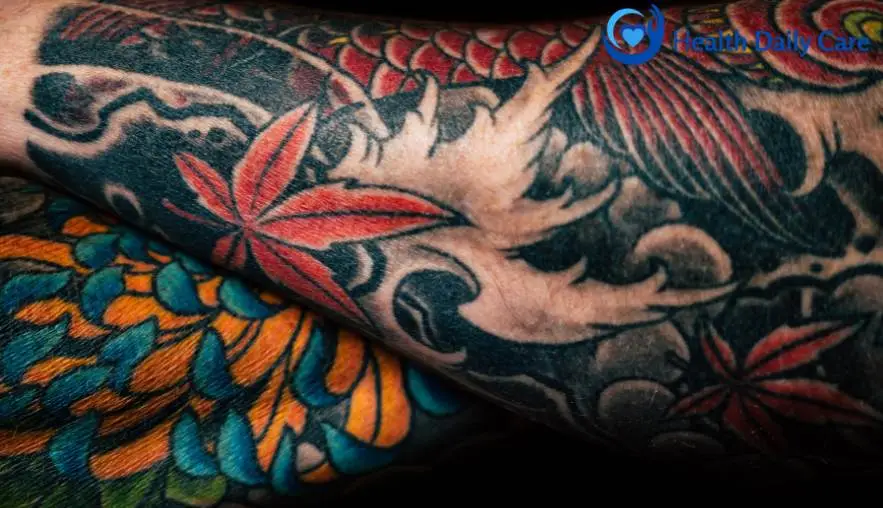
Does your blood sugar go down when you get a tattoo?
Getting a tattoo usually doesn’t affect blood sugar levels much, even for people with diabetes. But it’s important for people with diabetes to keep their blood sugar stable during and after getting a tattoo.
When you get a tattoo, your body might get stressed, which can make your blood sugar levels go up temporarily. But this doesn’t happen to everyone, and it usually doesn’t make blood sugar levels drop much.
The tattooing process itself doesn’t involve much physical activity, so it doesn’t usually affect blood sugar levels either.
But people with diabetes should still be careful and keep their blood sugar levels stable before, during, and after getting a tattoo.
Stress during the tattooing process can affect blood sugar levels, so it’s good to try to stay relaxed. Deep breathing or meditation can help with this.
People with diabetes should also have some sugar handy, like glucose tablets or juice, in case their blood sugar levels drop during the tattooing process.
It’s important to talk to the tattoo artist about having diabetes and any concerns you have, so they can help if needed.
Overall, getting a tattoo doesn’t usually affect blood sugar levels much, but people with diabetes should be careful and manage stress to keep their blood sugar levels stable during the tattooing process.
Who shouldn’t get a tattoo?
While getting a tattoo is a personal choice, there are certain individuals who should exercise caution or avoid getting tattoos altogether due to potential health risks or complications.
People with Certain Medical Conditions
Individuals with certain medical conditions, such as hemophilia (a disorder that affects blood clotting), autoimmune disorders, or skin conditions like eczema or psoriasis, may be at a higher risk of complications from getting tattoos.
These conditions can affect the body’s ability to heal properly and increase the risk of infection.
Pregnant or Breastfeeding Women
Pregnant or breastfeeding women are generally advised to avoid getting tattoos. While there is limited research on the effects of tattoo ink on pregnancy or breastfeeding, there is a potential risk of ink ingredients passing through the placenta or breast milk to the baby.
Additionally, the stress of getting a tattoo may not be recommended during pregnancy.
Individuals with Allergies
People who have allergies to tattoo ink ingredients or latex used in tattoo equipment should avoid getting tattoos to prevent allergic reactions.
It’s important to consult with a dermatologist or allergist if you have a history of skin allergies before getting a tattoo. Although I discussed above, Can a type 2 diabetic get a tattoo?
Those Prone to Keloid Scarring
Individuals who are prone to keloid scarring, which is an overgrowth of scar tissue, should carefully consider whether getting a tattoo is appropriate for them.
Keloids can develop at the site of a tattoo, leading to raised, thickened scars that may require medical treatment.
Individuals with Compromised Immune Systems
People with compromised immune systems, such as those undergoing chemotherapy or organ transplant recipients taking immunosuppressant medications, should avoid getting tattoos due to the increased risk of infection and delayed healing.
It’s essential to thoroughly research and consider the potential risks before deciding to get a tattoo, especially if you fall into one of these categories.
Consulting with a healthcare provider or dermatologist can provide valuable guidance based on your individual health status and medical history.
What is a safe A1C for a tattoo?
When people with diabetes think about getting a tattoo, they need to be careful about their A1C levels. A good A1C level, which shows how well they control their blood sugar, is below 7%. This makes it safer to get a tattoo because higher levels can cause problems when the tattoo heals.
It’s really important for people with diabetes to keep their blood sugar under control to avoid infections and help their tattoo heal properly.
By working closely with their doctors to manage their diabetes and keep their A1C levels safe, people can enjoy getting tattoos without worrying too much about their health.
But, it’s also important for people with diabetes to talk openly with their tattoo artist about their diabetes and any concerns they have about the tattoo.
Tattoo artists should know about the risks of high A1C levels in people with diabetes and take the right steps to make sure the tattoo is safe and turns out well.
In the end, by being careful and talking to the right people, people with diabetes can get beautiful tattoos while keeping their health in check.
Can I eat sugar during tattoo?
While it may be tempting to indulge in sugary treats during a tattoo session to help manage pain or discomfort, it is not recommended.
Consuming sugar can actually have negative effects on the body’s ability to heal and can make the experience more unpleasant.
During a tattoo, the body is already under stress from the process of getting inked, and adding high sugar intake to that equation can further hinder the healing process.
Sugar can cause inflammation in the body, which may lead to more pain and slower recovery for your new tattoo.
Instead of reaching for sugary snacks during a tattoo session, opt for healthier options like fruits or nuts that will provide sustained energy without negatively impacting your healing process.
Staying hydrated with water and eating nutrient-rich foods before your appointment can also help ensure a smoother and more comfortable experience.
Remember, taking care of your body both before and after getting tattooed plays a crucial role in how well your tattoo heals and looks in the long run. Although I discussed above, Can a type 2 diabetic get a tattoo?
Why is sugar good before a tattoo?
Some people wonder if it’s okay to eat sugar before getting a tattoo. Surprisingly, it can actually be helpful!
Sugar gives you a quick burst of energy, which is good because getting a tattoo can make you feel tired. When your body gets stressed during a tattoo, your blood sugar levels can drop, making you feel tired or dizzy.
Eating something with sugar in it, like fruit or juice, before your tattoo can help keep your blood sugar levels stable and give you the energy you need for the tattoo session.
Having a little sugar before your tattoo might also help you avoid feeling dizzy or lightheaded while getting inked.
Just remember, it’s important to listen to your body and talk to your tattoo artist if you have any special diet needs or health concerns.
So, if you’re getting ready for a tattoo, think about having a small snack with natural sugars to help keep your energy up and your blood sugar levels steady during the tattooing process.
Frequently Asked Questions
Are there specific concerns for type 2 diabetics regarding tattooing?
Yes, potential risks include delayed wound healing and infection. Monitor blood sugar levels closely before and after the procedure.
How can a type 2 diabetic prepare for a tattoo?
Prioritize blood sugar control, inform the tattoo artist about your condition, and follow aftercare instructions meticulously to prevent complications. Although I discussed above, Can a type 2 diabetic get a tattoo?
Last Few Words
Yes, people with type 2 diabetes can get tattoos, but they need to be careful and get ready before they do.
Before getting a tattoo, it’s important for people with diabetes to talk to their doctor to make sure their blood sugar levels are okay and their health is good for the tattoo.
Also, it’s good for them to talk openly with the tattoo artist about their diabetes. This can help prevent any problems and make sure they get the right instructions for taking care of their tattoo afterwards.
By being careful and taking care of the tattoo properly, people with type 2 diabetes can enjoy getting tattoos and stay healthy too.
